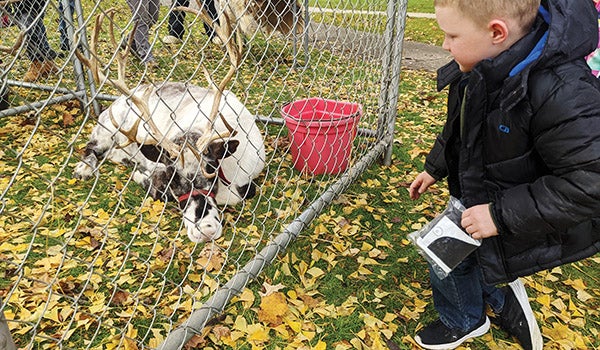Dig into history at the Ft. St. Joseph Museum
Published 5:39 pm Thursday, January 2, 2014
Residents of Niles, Mich. are most likely familiar with the contents and history of the Fort St. Joseph Museum, located at 508 E. Main St. However, those who do not live in Niles may be unaware of the treasures tucked inside the 19th-century building that is an artifact in its own right.
“We are a local history museum, so we have many exhibits about our local history — wedding dresses, a military exhibit, things like that,” said Carol Bainbridge, director of the Niles History Center. “We also have many wonderful areas of history in our museum that not just anybody has.”
The Niles History Center is comprised of the Chapin Mansion and the Fort St. Joseph Museum. The latter is housed in a building created by combining the carriage and boiler houses for the Chapin Mansion.
As such, the Fort St. Joseph Museum is not located on the actual site of the historical fort whose name it bears. It does, however, offer exhibits with artifacts that have been found through continuing archeological digs on the grounds of the fort.
“One thing that is unique is Fort St. Joseph. That is a reason in itself to visit the museum,” Bainbridge said.
Visitors to the museum will learn that the fort was built in 1691 by the French, who used it as a mission and as a center for the fur trade. Among the native peoples, the location was known as Pa-wa-ting, or “the Great Crossing,” over the O-sang-e-wong-se-be, or the St. Joseph River. The French chose the location for a fort because of the shallow depth of the St. Joseph River there.
Exhibits in the museum detail the manner by which the fort changed hands, from the French, to the British, to the Spanish—for just one day, and back to the British. The United States took possession of the region in 1783, but they did not take control over the fort until 1791.
While trade remained active in that location into the 1820s, the United States’ flag never flew over the fort. Nevertheless, it is from these four nations’ controlling the area that Niles takes its nickname, the City of Four Flags.
Among the many artifacts that tell the story of this early era in Niles’ history are actual rings and crucifixes left behind by Jesuit missionaries, as well as a full-sized replica of a canoe in a style that was used in this area.
Another exhibit of which curators are very proud is a collection of 12 pictographs drawn by Chief Sitting Bull of the Lakota Sioux.
“It’s something you won’t see anywhere else. Ernie LaPointe, Sitting Bull’s great-grandson, believes that they are the only pictographs in existence drawn by Sitting Bull. The others at the Smithsonian are recreations done by his uncle and his step-son,” Bainbridge said.
“People can see the pictographs here, and along with that, we’re fortunate to have a wonderful Lakota collection. Sitting Bull was Lakota, but these are not artifacts that are related to Sitting Bull,” Bainbridge said. “That collection is a very nice compliment to the pictographs by Sitting Bull.”
In addition to exhibits that feature the indigenous people of the Niles area, including the Potowatomi, the Fort St. Joseph Museum has exhibits that detail the growth of manufacturing in the area.
Many famous companies have roots in Niles, including the Simplicity Pattern Company. The Dodge Brothers, born and raised in Niles, later started the Dodge Brothers Motor Car Company in Detroit, Mich. Historical information about other, lesser-known companies is also on display.
Niles’ importance as a stop on the Underground Railroad is also addressed by an exhibit in the museum.
“We had the underground railroad that went through here,” Bainbridge said. “That’s a hot topic. If people went all the way, they crossed the river into Canada from Detroit.”
The Fort St. Joseph Museum is open from 10 a.m. to 4 p.m., Wednesdays through Fridays, and from 10 a.m. to 3 p.m. on Saturdays. Admission to the museum is free.
More information about visiting the Fort St. Joseph Museum can be obtained by visiting the website for the city of Niles at www.ci.niles.mi. or by calling 269-683-4700, ext. 4010.







